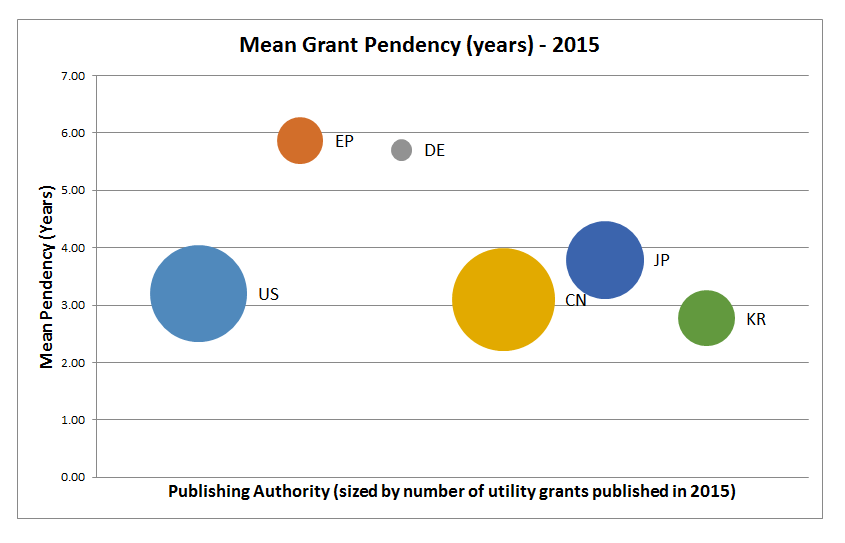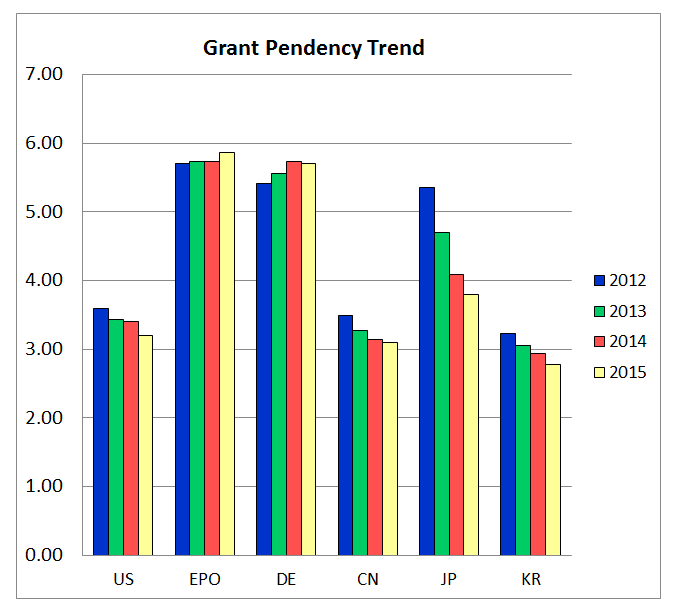Patent pendency is the time between a patent's filing data and its grant or issue date. IFI CLAIMS has examined patent pendency across the world’s major patent offices. The figure below shows the mean pendency for patents issued in 2015. The size of each symbol reflects the number of grants issued by each office.

Korea has the lowest mean patent pendency at 2.78 years. The USPTO and Chinese Patent Office (SIPO) have mean pendency of 3.20 and 3.09 years respectively. They both dominate in terms of the number of grants as well. The European and German patent offices have the longest time to grant at 5.87 and 5.70 years respectively.
The trend in pendency is shown below. Over the last four years, pendency has fallen in the US, China and Korea. It has declined dramatically in Japan. It has risen slightly for the EPO and German Patent Office (DE).

Patent Pendency for Patent Grants by Year and Patent Office
The underlying data is shown in the table below.
| Patent Office | 2012 | 2013 | 2014 | 2015 |
| US | 3.60 | 3.43 | 3.40 | 3.20 |
| EPO | 5.71 | 5.73 | 5.73 | 5.87 |
| DE | 5.41 | 5.55 | 5.73 | 5.70 |
| CN | 3.49 | 3.27 | 3.13 | 3.09 |
| JP | 5.36 | 4.70 | 4.09 | 3.79 |
| KR | 3.22 | 3.05 | 2.93 | 2.78 |
Patent Pendency (years) for Patent Grants by Year and Patent Office
How this data was produced
This data was compiled using the CLAIMS Direct Apache Solr search platform. Solr is based on the Apache Lucene search engine and is a key component of the CLAIMS Direct web service architecture. CLAIMS Direct includes a complete Solr full text search index. This search index supports the CLAIMS Direct search web service.
CLAIMS Direct subscribers can access Solr and the full text index directly. In this example, the Solr 'stats' function was accessed directly to generate the summary statistics. IFI CLAIMS will soon be releasing version 2.1 of the Solr index. In this version, these types of statistics can be generated using the CLAIMS Direct web services without directly accessing Solr.
For more information on accessing Solr directly (without going through the CLAIMS Direct web service), please contact us.